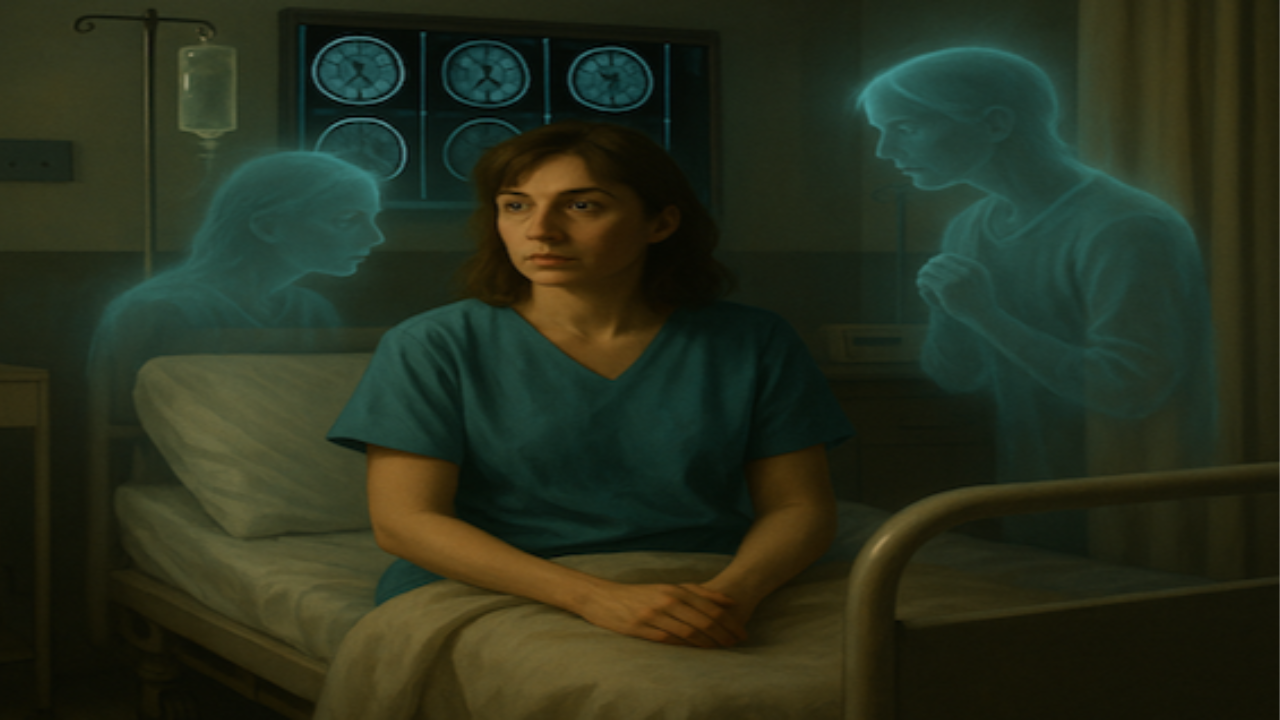The Voice That Diagnosed a Tumour: Medical Miracle or Paranormal Message?
Aug 08, 2025
It was a quiet winter afternoon in 1984 when a woman, sitting at home and reading, heard something that stopped her cold. A voice, calm and unfamiliar, spoke clearly inside her head.
“Please don’t be afraid,” it said. “I know it must be shocking for you to hear me speaking to you like this, but this is the easiest way I could think of. My friend and I used to work at the Children’s Hospital, Great Ormond Street, and we would like to help you.”
She had never heard voices before. No mental health history, no unusual episodes, no trauma. She was a mother in her 40s, living in London, with a clean bill of health and no history of hospitalisation. But now there were voices, and they weren’t angry or disordered. They were polite, calm, and oddly specific. The voice told her she needed a brain scan. It gave the name of a hospital in London and even directed her to a particular department. She was told that she had a tumour, and that inflammation near her brain stem would soon become dangerous. There were no headaches, no numbness, no fainting spells. She felt completely fine.
Still, the voices persisted. They returned again while she was away on holiday. Always calm. Always repeating the same message. Eventually, she sought help. Dr. Ikechukwu Obialo Azuonye, a psychiatrist at Lambeth Healthcare NHS Trust, diagnosed her with functional hallucinatory psychosis and prescribed thioridazine, an antipsychotic. For a short while, the voices faded. But they returned. And this time, they were insistent that she go directly to the hospital CT department they had first mentioned. They even gave her the exact location again.
To ease her anxiety, and with no signs of any physical illness, Dr. Azuonye arranged the scan. The initial CT in April 1984 raised some concerns. A follow-up with contrast imaging confirmed it, a large meningioma, extending across the left posterior frontal parafalcine region, just as the voices had described. Despite its size, the tumour hadn’t yet caused any observable damage. If left untreated, that would have changed. The woman agreed to surgery. In May 1984, a full craniotomy was performed. The tumour was removed, including portions attached to the falx, and she began her recovery. Her medication was gradually tapered off. No further treatment was needed.
She remained under psychiatric care during and after her recovery. Despite the initial diagnosis, she showed no signs of deeper mental illness. She was calm, aware, and fully cooperative. There were no delusions, no memory disturbances, no disordered thinking, and no history of psychological trauma or drug use. The hallucinations seemed to be a single lone encounter. Once the tumour was removed, the voices returned just once more. As she awoke from surgery, she heard them one final time: “We are pleased to have helped you. Goodbye.” Then they vanished, and this time, they never came back.
There were no relapses. No residual symptoms. At the twelve-year follow-up, she was still in good health, and remained deeply grateful for what had happened, though she never fully understood it. Most hallucinations are disorienting, frightening, or harmful. They rarely bring clarity, and they almost never save lives. That’s what makes this case so unusual.
Her case was later published in the British Medical Journal in 1997, and has since been studied in both medical and psychological circles. Some believe the tumour may have produced subtle physiological cues, faint pressure changes or disruptions the conscious mind couldn’t detect, which the brain may have reshaped into voices as a coping mechanism. But that theory has limits. These voices didn’t just offer vague impressions or emotional reassurance. They gave a diagnosis. They named the affected region, referenced inflammation, and pointed her to a hospital she’d never been to, all with a level of precision that would be remarkable even for someone with medical training. She had none.
There was no hidden knowledge to draw from. Just a woman in perfect health who heard something she couldn’t explain. The voices didn’t want praise. They didn’t demand belief. They simply said what needed to be said, and once the danger had passed, they disappeared without a trace.
